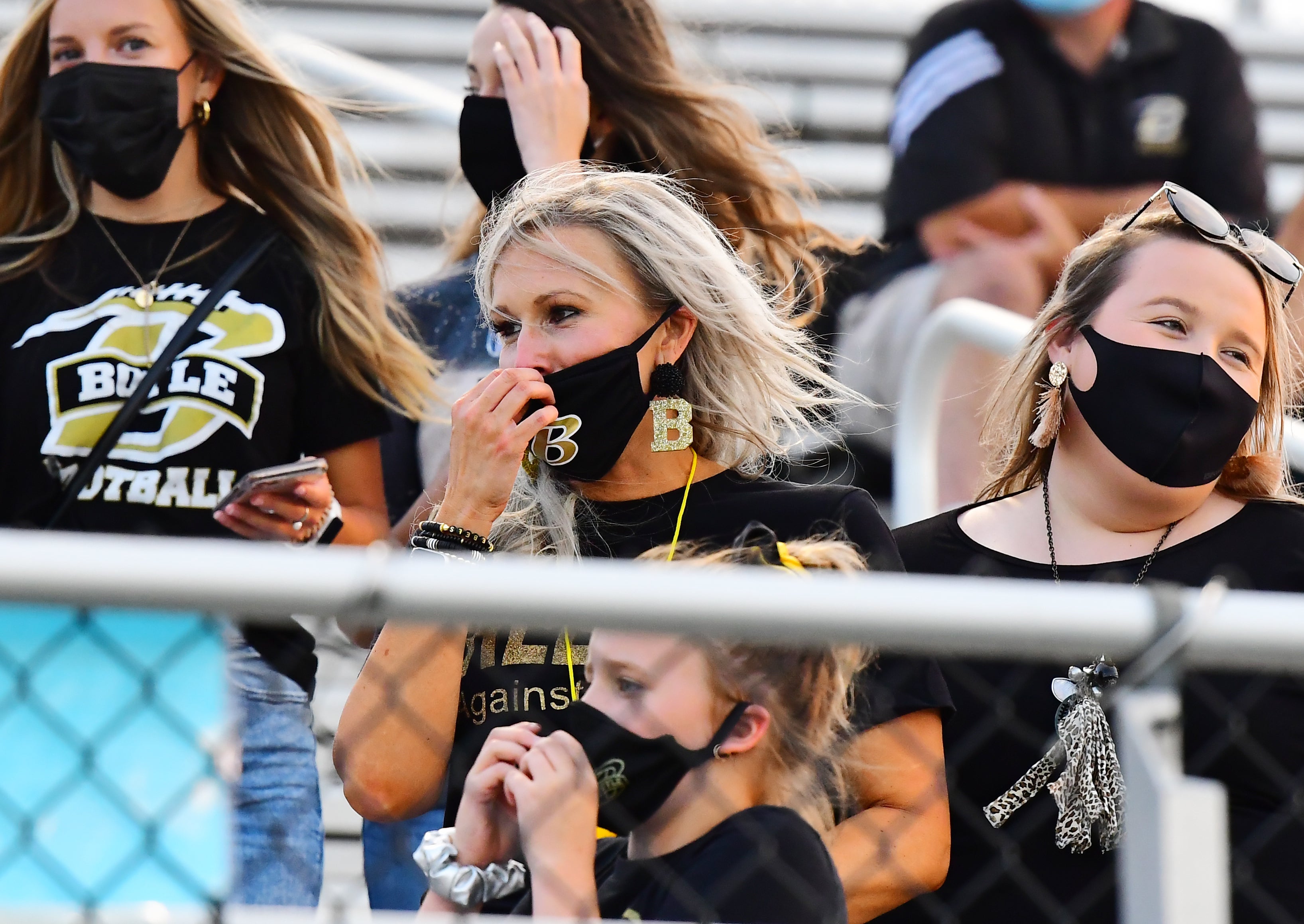ER doctor, mother of 3, and coach’s wife shares thoughts on COVID and what lies ahead
Published 12:30 pm Friday, August 27, 2021

- Dr. Melissa Haddix, center, has seen patients at five hospitals during the pandemic and says COVID is not going away. However, she says we have to learn to manage COVID and keep living. (Chris Zollner Photo)
She works in emergency medicine at Ephraim McDowell Regional Medical Center, is the mother of three and the wife of a high school football coach.
That gives Dr. Melissa Haddix of Boyle County a unique perspective on COVID when it comes to work, family and sports.
“COVID has been something nobody was really prepared for and it kind of keeps changing,” Haddix, the wife of Boyle County football coach Justin Haddix, said. “Just when we think we are getting a break like we did in June and July seeing normal numbers in the ER and even going two weeks with no COVID cases, here it comes again.
“The staff at hospitals are so exhausted and we are short staffed. It has been a very trying and humbling time. I have worked at five different hospitals during the pandemic. I have seen a lot of really sick COVID patients.”
She said COVID has returned with a “vengeance” the last three weeks, especially with kids. She said children are coming in with headaches, sore throats and overall pain and are testing positive for COVID.
“I didn’t really see pediatric patients during the start of COVID and now kids are coming back positive for COVID. They are not bad enough to be hospitalized,” the Boyle ER doctor said.
That’s a good thing because Haddix said for the first time there are not no critical care beds available in Kentucky. That includes no space at the UK med center. The COVID unit at Ephraim McDowell is full and all ventilators the hospital has are being used.
“We are still seeing people that have other reasons to be on vents other than COVID,” Haddix said. “But all the vents we have are being used and COVID has definitely ramped back up.”
She is making sure her children wear masks and keep their hands clean at school and knows schools are doing their best to send sick students home or have them not come to school if they are sick.
“Kids cannot stop living. We have got to manage this effectively and safely,” she said. “Masks have helped. During the pandemic there was also no flu and RSV like we normally have. I hope we can look back in five years and see that people making decisions have done the best they can with what we know because the information changes almost daily.”
She was confident a year ago that high school football would be able to have some sort of season — and Kentucky did. She still worries about her husband and his players this season.
“Maybe selfishly football-wise I wish we were back to virtual (schooling). Now if a player is in class and there is a positive case, he has to quarantine,” Haddix said. “You want kids to play and stay healthy but if they are exposed they have to quarantine. Most kids do not have symptoms. They are just carriers.”
Haddix admits she’s not sure “we will ever get over COVID.” Instead, the key is learning to cope with COVID.
“All physicians and front line medical personnel have gone through something we never thought we would. I never imagined going through a pandemic,” she said. “It has been rough. You think it is better but you cannot take a deep breath and exhale. Everybody still needs to worry. If you are sick, don’t get out. Wear your mask. We still do not know how to effectively stop this.”
Dr. Haddix also said it is important to still get a flu shot in the next few months.
“If we wear masks we might not see any flu,” Haddix said. “September and October is RSV season for kids. Last year we rarely saw that which was great. Masks came off and we are seeing it again. Masks were effective at stopping some viruses.
“Trust your physician and what he or she tells you. We get so much data all the time. Everybody is still learning about COVID. I took the vaccine when it came out. I did not take it for me. I took it for my parents, Justin’s parents, people with other illnesses, my kids and my patients. I want us to be safe but also be able to go on living. The problem is nobody knows exactly what is best right now.”






